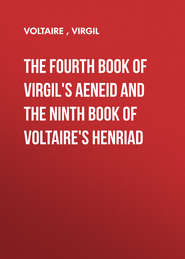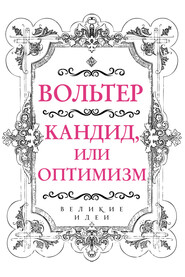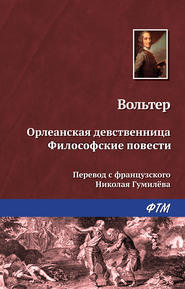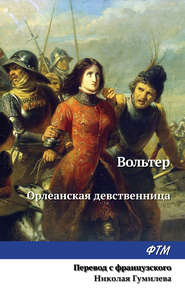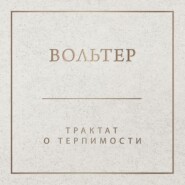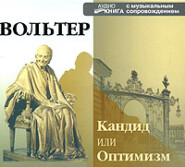По всем вопросам обращайтесь на: info@litportal.ru
(©) 2003-2024.
✖
The History of Peter the Great, Emperor of Russia
Настройки чтения
Размер шрифта
Высота строк
Поля
Peter despised all this ostentation; it was to have been wished that he had shewn an equal contempt for the pleasures of the table, in which the Germans, at that time, placed their chiefest glory. It was at one of those entertainments,[44 - Le Fort's MS. memoirs.] then too much in fashion, and which are alike fatal to health and morality, that he drew his sword upon his favourite, Le Fort; but he expressed as much contrition for this sudden sally of passion, as Alexander did for the murder of Clytus; he asked pardon of Le Fort, saying, that he wanted to reform his subjects, and could not yet reform himself. General Le Fort, in his manuscript praises the czar more for this goodness of heart, than he blames him for his excess of passion.
The ambassadors then went through Pomerania and Berlin; and, from thence, one part took its way through Magdeburg, and the other by Hamburg, a city which already began to be considerable by its extensive commerce, but not so rich and populous as it has become since. From thence they directed their route towards Minden, crossed Westphalia, and at length, by the way of Cleves, arrived at Amsterdam.
The czar reached this city fifteen days before the ambassadors. At his first coming, he lodged in a house belonging to the East India company; but soon afterwards he took a small apartment in the dock-yard, belonging to the admiralty. He then put on the habit of a Dutch skipper, and in that dress went to the village of Saardam, a place where a great many more ships were built at that times, than at present. This village is as large, as populous, and as rich, and much neater, than many opulent towns. The czar greatly admired the multitude of people who were constantly employed there, the order and regularity of their times of working, the prodigious dispatch with which they built and fitted out ships, the incredible number of warehouses, and machines, for the greater ease and security of labour. The czar began with purchasing a bark, to which he made a mast with his own hands; after that, he worked upon all the different parts in the construction of a vessel, living in the same manner as the workmen at Saardam, dressing and eating the same as them, and working in the forges, the rope-walks, and in the several mills, which are in prodigious numbers in that village, for sawing timber, extracting oil, making paper, and wire-drawing. He caused himself to be enrolled in the list of carpenters, by the name of Peter Michaelhoff, and was commonly called Peter Bas, or Master Peter: the workmen were at first confounded at having a crowned head for a fellow-labourer, but soon became familiarized to the sight.
While he was thus handling the compass and the axe at Saardam, a confirmation was brought him of the division in Poland, and of the double nomination of the elector Augustus, and the prince of Conti. The carpenter of Saardam immediately promised king Augustus to assist him with thirty thousand men; and, from his work-loft, issued out orders to his army that was assembled in the Ukraine against the Turks.
11th Aug. 1697.] His troops gained a victory over the Tartars near Azoph, and a few months afterwards took from them the city of Or, or Orkapi, which we call Precop.[45 - Precop, or Perekop, once a fortress on the Isthmus, which joins the peninsula of Crim Tartary to the main land of little Tartary, in European Turkey, and thence considered as the key to that country. It has its name from the ditches cut across for the defence of the peninsula.] As to himself, he still continued improving in different arts: he went frequently from Saardam to Amsterdam, to hear the lectures of the celebrated anatomist, Ruysch; and made himself master of several operations in surgery, which, in case of necessity, might be of use both to himself and his officers. He went through a course of natural philosophy, in the house of the burgomaster Witzen, a person for ever estimable for his patriotic virtue, and the noble use he made of his immense riches, which he distributed like a citizen of the world, sending men of abilities, at a great expense, to all parts of the globe, in search of whatever was most rare and valuable, and fitting out vessels at his own charge to make new discoveries.
Peter Bas gave a truce to his labours for a short time, but it was only to pay a private visit at Utrecht, and at the Hague, to William, king of England, and stadtholder of the United Provinces. General Le Fort was the only one admitted to the private conference of the two monarchs. Peter assisted afterwards at the public entry of his ambassadors, and at their audience: they presented, in his name, to the deputy of the states, six hundred of the most beautiful sables that could be procured; and the states, over and above the customary presents on these occasions, of a gold chain and a medal, gave them three magnificent coaches. They received the first visits of all the plenipotentiaries who were at the congress of Ryswick, excepting those of France, to whom they had not notified their arrival, not only because the czar espoused the cause of Augustus against the prince of Conti, but also because king William, whose friendship he was desirous of cultivating, was averse to a peace with France.
At his return to Amsterdam he resumed his former occupations, and completed with his own hands, a ship of sixty guns, that he had begun himself, and sent her to Archangel; which was the only port he had at that time on the ocean.
He not only engaged in his service several French refugees, Swiss, and Germans; but he also sent all sorts of artists over to Moscow, and he previously made a trial of their several abilities himself. There were few trades or arts which he did not perfectly well understand, in their minutest branches: he took a particular pleasure in correcting with his own hands, the geographical maps, which at that time laid down at hazard the positions of the towns and rivers in his vast dominions, then very little known. There is still preserved, a map, on which he marked out, with his own hand, his projected communication of the Caspian and Black Seas, the execution of which he had given in charge to Mr. Brekel, a German engineer. The junction of these two seas was indeed a less difficult enterprise than that of the Ocean and Mediterranean, which was effected in France; but the very idea of joining the sea of Azoph with the Caspian, astonished the imagination at that time: but new establishments in that country became the object of his attention, in proportion as his successes begat new hopes.
His troops, commanded by general Schein and prince Dolgorowski, had lately gained a victory over the Tartars near Azoph, and likewise over a body of janissaries sent by sultan Mustapha to their assistance. (July 1696.) This success served to make him more respected, even by those who blamed him, as a sovereign, for having quitted his dominions, to turn workman at Amsterdam. They now saw, that the affairs of the monarch did not suffer by the labours of the philosopher, the traveller, and the artificer.
He remained at Amsterdam, constantly employed in his usual occupations of shipbuilding, engineering, geography, and the practice of natural philosophy, till the middle of January 1698, and then he set out for England, but still as one of the retinue of his ambassadors.
King William sent his own yacht to meet him, and two ships of war as convoy. In England he observed the same manner of living as at Amsterdam and Saardam; he took an apartment near the king's dockyard, at Deptford, where he applied himself wholly to gain instruction. The Dutch builders had only taught him their method, and the practical part of shipbuilding. In England he found the art better explained; for there they work according to mathematical proportion. He soon made himself so perfect in this science, that he was able to give lessons to others. He began to build a ship according to the English method of construction, and it proved a prime sailor. The art of watchmaking, which was already brought to perfection in London, next attracted his attention, and he made himself complete master of the whole theory. Captain Perry, the engineer, who followed him from London to Russia, says, that from the casting of cannon, to the spinning of ropes, there was not any one branch of trade belonging to a ship that he did not minutely observe, and even put his hand to, as often as he came into the places where those trades were carried on.
In order to cultivate his friendship, he was allowed to engage several English artificers into his service, as he had done in Holland; but, over and above artificers, he engaged likewise some mathematicians, which he would not so easily have found in Amsterdam. Ferguson, a Scotchman, an excellent geometrician, entered into his service, and was the first person who brought arithmetic into use in the exchequer in Russia, where before that time, they made use only of the Tartarian method of reckoning, with balls strung upon a wire; a method which supplied the place of writing, but was very perplexing and imperfect, because, after the calculation, there was no method of proving it, in order to discover any error. The Indian ciphers, which are now in use, were not introduced among us till the ninth century, by Arabs; and they did not make their way into the Russian empire till one thousand years afterwards. Such has been the fate of the arts, to make their progress slowly round the globe. He took with him two young students from a mathematical school,[46 - These were two scholars from Christ Church Hospital, commonly called blue coat boys.] and this was the beginning of the marine academy, founded afterwards by Peter the Great. He observed and calculated eclipses with Ferguson. Perry, the engineer, though greatly discontented at not being sufficiently rewarded, acknowledges, that Peter made himself a proficient in astronomy; that he perfectly well understood the motions of the heavenly bodies, as well as the laws of gravitation, by which they are directed. This force, now so evidently demonstrated, and before the time of the great Newton so little known, by which all the planets gravitate towards each other, and which retain them in their orbits, was already become familiar to a sovereign of Russia, while other countries amused themselves with imaginary vertices, and, in Galileo's nation, one set of ignorant persons ordered others, as ignorant, to believe the earth to be immoveable.
Perry set out in order to effect a communication between rivers, to build bridges, and construct sluices. The czar's plan was to open a communication by means of canals between the Ocean, the Caspian, and the Black Seas.
We must not forget to observe, that a set of English merchants, with the marquis of Caermarthen[47 - The czar was particularly fond of this nobleman, because he was a great lover of maritime affairs, frequently rowed and sailed with him upon the water, and gave him what information he could concerning shipping.] at their head, gave Peter fifteen thousand pounds sterling, for the permission of vending tobacco in Russia. The patriarch, by a mistaken severity, had interdicted this branch of trade; for the Russian church forbid smoking, as an unclean and sinful action. Peter, who knew better things, and who, amongst his many projected changes, meditated a reformation of the church, introduced this commodity of trade into his dominions.
Before Peter left England, he was entertained by king William with a spectacle worthy such a guest: this was a mock sea-fight. Little was it then imagined, that the czar would one day fight a real battle on this element against the Swedes, and gain naval victories in the Baltic. In fine, William made him a present of the vessel in which he used to go over to Holland, called the Royal Transport, a beautiful yacht, and magnificently adorned. In this vessel Peter returned to Holland the latter end of 1698, taking with him three captains of ships of war, five and twenty captains of merchant ships, forty lieutenants, thirty pilots, as many surgeons, two hundred and fifty gunners, and upwards of three hundred artificers. This little colony of persons skilful in all branches, sailed from Holland to Archangel, on board the Royal Transport, and from thence were distributed into all the different places where their services were necessary. Those who had been engaged at Amsterdam went by the way of Narva, which then belonged to the Swedes.
While he was thus transplanting the arts and manufacture of England and Holland into his own country, the officers, whom he had sent to Rome, and other places in Italy, had likewise engaged some artists in his service. General Sheremeto, who was at the head of his embassy to Italy, took the tour of Rome, Naples, Venice, and Malta, while the czar proceeded to Vienna with his other ambassadors. He had now only to view the military discipline of the Germans, after having seen the English fleets, and the dock-yards of Holland. Politics had likewise as great a share in this journey as the desire of instruction. The emperor was his natural ally against the Turks. Peter had a private audience of Leopold, and the two monarchs conferred standing, to avoid the trouble of ceremony.
There happened nothing worthy remark during his stay at Vienna, except the celebration of the ancient feast of the landlord and landlady, which had been disused for a considerable time, and which Leopold thought proper to revive on the czar's account. This feast, which by the Germans is called Wurtchafft, is celebrated in the following manner: —
The emperor is landlord and the empress landlady, the king of the Romans, the archdukes and the archduchesses are generally their assistants: they entertain people of all nations as their guests, who come dressed after the most ancient fashion of their respective countries: those who are invited to the feast, draw lots for tickets, on each of which is written the name of the nation, and the character or person they are to represent. One perhaps draws a ticket for a Chinese mandarin; another for a Tartarian mirza; a third a Persian satrap; and a fourth for a Roman senator; a princess may, by her ticket, be a gardener's wife, or a milk-maid; a prince a peasant, or a common soldier. Dances are composed suitable to all those characters, and the landlord and landlady with their family wait at table. Such was the ancient institution; but on this occasion[48 - Le Fort's MSS. and those of Petersburg.] Joseph, king of the Romans, and the countess of Traun, represented the ancient Egyptians. The archduke Charles, and the countess of Walstein, were dressed like Flemings in the time of Charles the Fifth. The archduchess Mary Elizabeth and count Traun were in the habits of Tartars; the archduchess Josephina and the count of Workslaw were habited like Persians, and the archduchess Mariamne and prince Maximilian of Hanover in the character of North Holland peasants. Peter appeared in the dress of a Friesland boor, and all who spoke to him addressed him in that character, at the same time talking to him of the great czar of Muscovy. These are trifling particulars; but whatever revives the remembrance of ancient manners and customs, is in some degree worthy of being recorded.
Peter was ready to set out from Vienna, in order to proceed to Venice, to complete his tour of instruction, when he received the news of a rebellion, which had lately broke out in his dominions.
CHAP. X
A conspiracy punished. – The corps of strelitzes abolished, alterations in customs, manners, church, and state.
Czar Peter, when he left his dominions to set out on his travels, had provided against every incident, even that of rebellion. But the great and serviceable things he had done for his country, proved the very cause of this rebellion.
Certain old boyards, to whom the ancient customs were still dear, and some priests, to whom the new ones appeared little better than sacrilege, began these disturbances, and the old faction of the princess Sophia took this opportunity to rouse itself anew. It is said, that one of her sisters, who was confined to the same monastery, contributed not a little to excite these seditions. Care was taken to spread abroad the danger to be feared from the introduction of foreigners to instruct the nation. In short, who would believe, that[49 - Le Fort's MSS.] the permission which the czar had given to import tobacco into his empire, contrary to the inclination of the clergy, was one of the chief motives of the insurrection? Superstition, the scourge of every country, yet the darling of the multitude, spread itself from the common people to the strelitzes, who had been scattered on the frontiers of Lithuania: they assembled in a body, and marched towards Moscow, with the intent to place the princess Sophia on the throne, and for ever to prevent the return of a czar who had violated the established customs,[50 - A most extraordinary instance of the obstinate attachment of the Russians to their old customs, happened in the time of the czar Bassilowitz, and undoubtedly influenced him not a little in the severity with which he treated his people. The king of Poland, Stephen Battori, having recovered Livonia, went himself into that province to establish a new form of government. According to the constant custom there, when any peasant, all of whom were treated as slaves, had committed a fault, he was whipped with a rod till the blood came. The king was willing to commute this barbarous punishment for one that was more moderate; but the peasants, insensible of the favour designed them, threw themselves at his feet, and intreated him not to make any alterations in their ancient customs, because they had experienced, that all innovations, far from procuring them the least redress, had always made their burthens sit the heavier on them.] by presuming to travel for instruction among foreigners. The forces commanded by Schein and Gordon, who were much better disciplined than the strelitzes, met them fifteen leagues from Moscow, gave them battle, and entirely defeated them: but this advantage, gained by a foreign general over the ancient militia, among whom were several of the burghers of Moscow, contributed still more to irritate the people.
To quell these tumults, the czar sets out privately from Vienna, passes through Poland, has a private interview with Augustus, concerts measures with that prince for extending the Russian dominions on the side of the Baltic, and at length arrived at Moscow, where he surprised every one with his presence: he then confers rewards on the troops who had defeated the strelitzes, (Sept. 1698,) of whom the prisons were now full. If the crimes of these unhappy wretches were great, their punishment was no less so. Their leaders, with several of their officers and priests, were condemned to death; some were broken upon the wheel,[51 - Memoirs of captain Perry, the engineer, employed by Peter the Great, in Russia, and MSS. of Le Fort.] and two women were buried alive; upwards of two thousand of the strelitzes were executed, part of whom were hung round about the walls of the city, and others put to death in different manners, and their dead bodies remained exposed for two days in the high roads,[52 - Captain Perry, in p. 184 of his memoirs, says, that these executions being performed in the depth of winter, their bodies were immediately frozen; those who were beheaded, were ordered to be left in the same posture as when executed, in ranks upon the ground, with their heads lying by them: and those who were hanged round the three walls of the city, were left hanging the whole winter, to the view of the people, till the warm weather began to come on in the spring, when they were taken down and buried together in a pit, to prevent infection. This author adds, that there were other gibbets placed on all the public roads leading to Moscow, where others of these rebels were hanged.] particularly about the monastery where the princesses Sophia and Eudocia resided.[53 - MSS. of Le Fort.] Monuments of stone were erected, on which their crimes and punishments were set forth. A great number of them who had wives and children at Moscow, were dispersed with their families into Siberia, the kingdom of Astracan, and the country of Azoph. This punishment was at least of service to the state, as they helped to cultivate and people a large tract of waste land.
Perhaps, if the czar had not found it absolutely necessary to make such terrible examples, he might have employed part of those strelitzes whom he put to death, upon the public works; whereas they were now lost both to him and the state: the lives of men ought to be held in great estimation, especially in a country where the increase of inhabitants ought to have been the principal care of the legislature: but he thought it necessary to terrify and break the spirit of the nation by executions, and the parade attending them. The entire corps of the strelitzes, whose number not one of his predecessors had even dared to think of diminishing, was broke for ever, and their very name abolished. This change was effected without any resistance, because matters had been properly prepared beforehand. The Turkish sultan, Osman, as I have already remarked, was deposed and murdered in the same century, only for giving the janissaries room to suspect that he intended to lessen their number. Peter had better success, because he had taken better measures.
Of this powerful and numerous body of the strelitzes, he left only two feeble regiments, from whom there could no longer be any danger; and yet these still retaining their old spirit of mutiny, revolted again in Astracan, in the year 1705, but were quickly suppressed.
But while we are relating Peter's severity in this affair of state, let us not forget to commemorate the more than equal humanity he shewed some time afterwards, when he lost his favourite Le Fort, who was snatched away by an untimely fate, March 12, N. S. 1699, at the age of 46. He paid him the same funeral honours as are bestowed on the greatest sovereigns, and assisted himself in the procession, carrying a pike in his hand, and marching after the captains, in the rank of a lieutenant, which he held in the deceased general's regiment, hereby setting an example to his nobles, of the respect due to merit and the military rank.
After the death of Le Fort, it appeared plainly, that the changes in the state were not owing to that general, but to the czar himself. Peter had indeed been confirmed in his design by his several conversations with Le Fort; but he had formed and executed them all without his assistance.
As soon as he had suppressed the strelitzes, he established regular regiments on the German model, who were all clothed in a short and commodious uniform, in the room of those long and troublesome coats, which they used to wear before; and, at the same time, their exercise was likewise more regular.
The regiment of Preobrazinski guards was already formed; it had taken its name from the first company of fifty men, whom the czar had trained up in his younger days, in his retreat at Preobrazinski, at the time when his sister Sophia governed the state, and the other regiment of guards was also established.
As he had himself passed through the lowest degrees in the army, he was resolved that the sons of his boyards and great men, should serve as common soldiers before they were made officers. He sent some of the young nobility on board of his fleet at Woronitz and Azoph, where he obliged them to serve their apprenticeship as common seamen. No one dared to dispute the commands of a master who had himself set the example. The English and Dutch he had brought over with him were employed in equipping this fleet for sea, in constructing sluices, and building docks, for careening the ships, and to resume the great work of joining the Tanais, or Don, and the Wolga, which had been dropped by Brekel, the German. And now he began to set about his projected reformations in the council of state, in the revenue, in the church, and even in society itself.
The affairs of the revenue had been hitherto administered much in the same manner as in Turkey. Each boyard paid a stipulated sum for his lands, which he raised upon the peasants, his vassals; the czar appointed certain burghers and burgomasters to be his receivers, who were not powerful enough to claim the right of paying only such sums as they thought proper into the public treasury. This new administration of the finances, was what cost him the most trouble: he was obliged to try several methods before he could fix upon a proper one.
The reformation of the church, which in all other countries is looked upon as so dangerous and difficult an attempt, was not so to him. The patriarchs had at times opposed the authority of the crown, as well as the strelitzes; Nicon with insolence, Joachin, one of his successors, in an artful manner.
The bishops had arrogated the power of life and death, a prerogative directly contrary to the spirit of religion, and the subordination of government. This assumed power, which had been of long standing, was now taken from them. The patriarch Adrian, dying at the close of this century, Peter declared that there should for the future be no other.
This dignity then was entirely suppressed, and the great income belonging thereto was united to the public revenue, which stood in need of this addition. Although the czar did not set himself up as the head of the Russian church, as the kings of Great Britain have done in regard to the church of England; yet he was, in fact, absolute master over it, because the synods did not dare either to disobey the commands of a despotic sovereign, or to dispute with a prince who had more knowledge than themselves.
We need only to cast an eye on the preamble to the edict, concerning his ecclesiastical regulations, issued in 1721, to be convinced that he acted at once as master and legislator: 'We should deem ourselves guilty of ingratitude to the Most High, if, after having reformed the military and civil orders, we neglect the spiritual, &c. For this cause, following the example of the most ancient kings, who have been famed for piety, we have taken upon us to make certain wholesome regulations, touching the clergy.' It is true, he convened a synod for carrying into execution his ecclesiastical decrees, but the members of this synod, at entering upon their office, were to take an oath, the form of which had been drawn up and signed by himself. This was an oath of submission and obedience, and was conceived in the following terms: 'I swear to be a faithful and obedient servant and subject to my true and natural sovereign, and to the august successors whom it shall please him to nominate, in virtue of the incontestable right of which he is possessed: I acknowledge him to be the supreme judge of this spiritual college: I swear by the all-seeing God, that I understand and mean this oath in the full force and sense, which the words convey to those who read or hear it.' This oath is much stronger than that of the supremacy in England. The Russian monarch was not, indeed, one of the fathers of the synod, but he dictated their laws; and, though he did not touch the holy censer, he directed the hands that held it.








